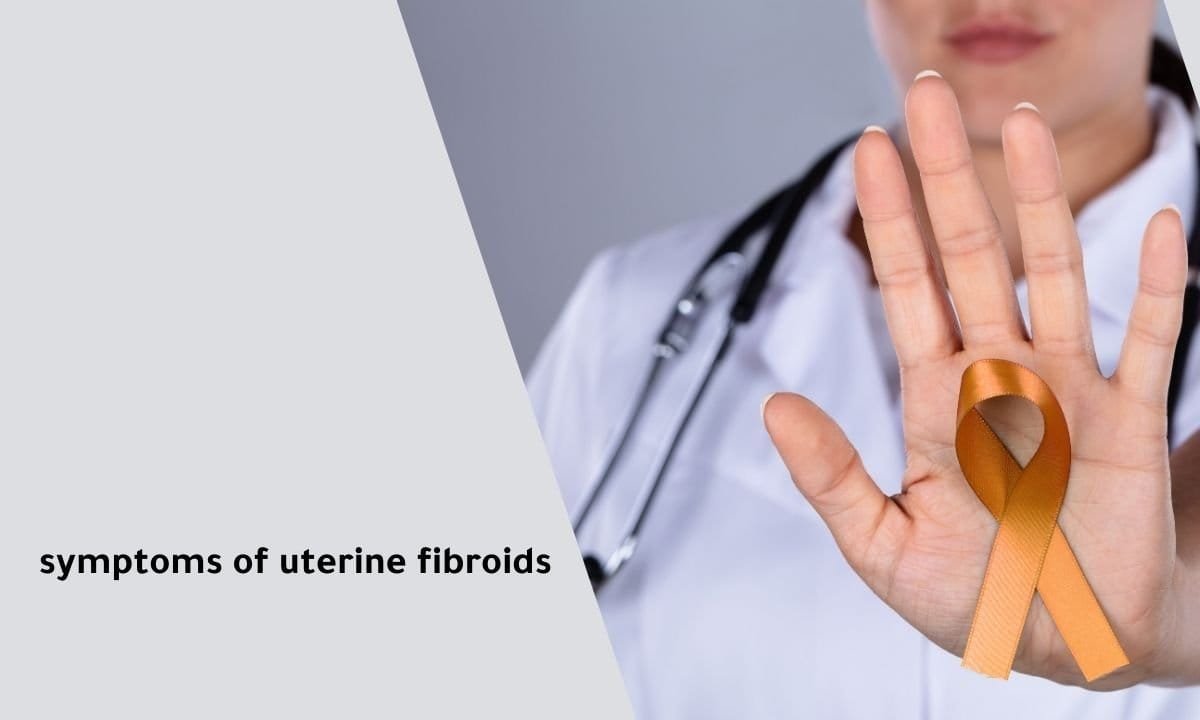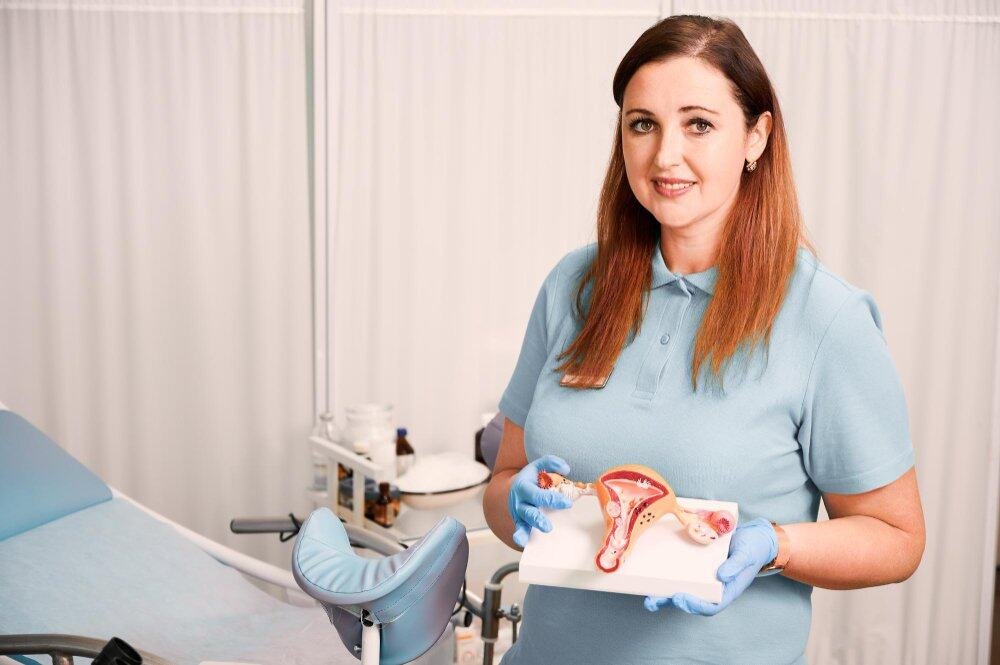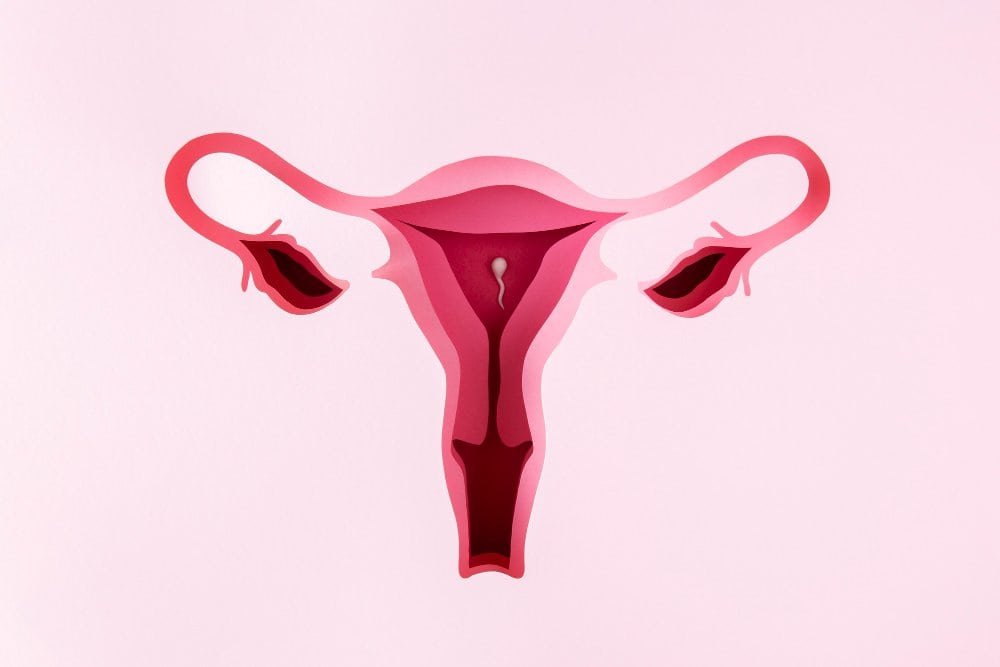Uterine fibroids are noncancerous growths in the uterus. These tumours affect many women and can range in size and location within the womb. While some women with fibroids may not experience symptoms, others face a variety of discomforts that affect their daily lives. It is essential to recognize the common symptoms of uterine fibroids to seek timely medical advice and explore effective treatment options.

Common Symptoms of Uterine Fibroids
1. Heavy and Prolonged Menstrual Bleeding
One of the most common symptoms of uterine fibroids is heavy menstrual bleeding, also known as menorrhagia. This includes periods that last longer than usual or involve the passing of large blood clots. Women experiencing this symptom may find it difficult to manage normal daily activities due to the heavy flow, and in some cases, prolonged periods lead to anaemia. If you find yourself changing sanitary products more frequently or experiencing fatigue during your period, it could be a sign of fibroids.
2. Pelvic Pain and Pressure
Fibroids cause a feeling of fullness or pressure in the lower abdomen or pelvis. This pressure is often accompanied by dull or sharp pain, depending on the size and location of the fibroid growths. In severe cases, the tumours may press against other organs, such as the bladder or bowel, leading to discomfort. Some women report experiencing painful intercourse or increased cramping during menstruation as a result of the fibroids.
3. Frequent Urination and Difficulty Emptying the Bladder
As fibroids grow, they press against the bladder, causing frequent or complex urination. Women may feel the urge to urinate more often but find it difficult to empty their bladder, which leads to urinary tract infections (UTIs) and further discomfort. Additionally, some women may experience similar pressure on the bowel, leading to constipation and difficulty with bowel movements.
4. Abdominal Enlargement
When fibroids grow larger, women may notice an enlargement of their abdomen, often mistaken for weight gain or pregnancy. This abnormal swelling is caused by fibroid tumours pressing against the abdominal muscles, creating a bloated or uncomfortable feeling. While this symptom is not always painful, it leads to self-consciousness and discomfort.
5. Painful or Abnormal Menstrual Periods
Many women with fibroids report that their periods are more painful than usual, with increased cramping that occurs both before and during menstruation. The pain is sharp and severe, sometimes radiating to the lower back or legs, making daily activities difficult.
6. Reproductive Issues
Fibroids also affect fertility, leading to complications such as difficulty conceiving, miscarriage, or infertility. Depending on the size and location of the fibroids, they may block the fallopian tubes or disrupt the normal function of the uterus, making it difficult for a woman to get pregnant or carry a pregnancy to term. Women experiencing reproductive issues, including those struggling with pregnancy complications, should seek medical advice to explore treatment options.
Treatment Options for Uterine Fibroids
There are various treatment options available for uterine fibroids, ranging from medications to surgical interventions. Some women may find relief with hormone therapy, such as birth control pills or intrauterine devices (IUDs), which help regulate heavy bleeding and shrink fibroids. In more severe cases, surgical options like myomectomy (removal of the fibroids) or hysterectomy (removal of the uterus) recommend. Experts like Dr. Samir Abdel Ghaffar offer interventional radiology, which provides minimally invasive options, such as uterine fibroid embolization (UFE), that effectively shrink fibroids without significant surgery.
Seeking Help from a Specialist
If you’re experiencing any of the symptoms of uterine fibroids, it’s essential to seek professional medical advice. Dr. Samir Abdel Ghaffar, a renowned expert in interventional radiology, offers innovative, non-surgical treatments to manage and treat fibroids. His specialized approach ensures that women find relief without undergoing invasive surgery, preserving their reproductive health and improving their quality of life.
Don’t let uterine fibroids control your life—reach out to Dr. Samir Abdel Ghaffar for a personalized consultation and explore your treatment options today.
Treatment Options for Uterine Fibroids
There are various treatment options available for uterine fibroids, ranging from medications to surgical interventions. Some women may find relief with hormone therapy, such as birth control pills or intrauterine devices (IUDs), which help regulate heavy bleeding and shrink fibroids. In more severe cases, surgical options like myomectomy (removal of the fibroids) or hysterectomy (removal of the uterus) may be recommended. Experts like Dr. Samir Abdel Ghaffar offer interventional radiology, which provides minimally invasive options, such as uterine fibroid embolization (UFE), that shrink fibroids without significant surgery.
FAQS
What causes uterine fibroids to grow?
Uterine fibroids typically grow in response to hormones like estrogen and progesterone. Factors such as hormonal changes, genetics, and age influence their growth. Fibroids tend to increase during childbearing years and may shrink after menopause.
How to check for fibroids at home?
While it’s not possible to diagnose fibroids at home, symptoms like heavy periods, pelvic pain, frequent urination, or abdominal swelling suggest their presence. It’s crucial to consult a physician for a proper diagnosis through medical imaging like ultrasounds.
Fibroid cancer symptoms
Although fibroids are generally noncancerous, rare cases of fibroid cancer (leiomyosarcoma) may include symptoms like rapid growth of the fibroid, increased pelvic pain, and abnormal vaginal bleeding. Consulting a physician is essential if any of these signs occur.
Seeking Help from a Specialist
If you’re experiencing any of the symptoms of uterine fibroids, it’s essential to seek professional medical advice. Dr. Samir Abdel Ghaffar, a renowned expert in interventional radiology, offers innovative, non-surgical treatments to manage and treat fibroids. His specialized approach ensures that women find relief without undergoing invasive surgery, preserving their reproductive health and improving their quality of life.
Don’t let uterine fibroids control your life—reach out to Dr. Samir Abdel Ghaffar for a personalized consultation and explore your treatment options today.

 العربية
العربية 

